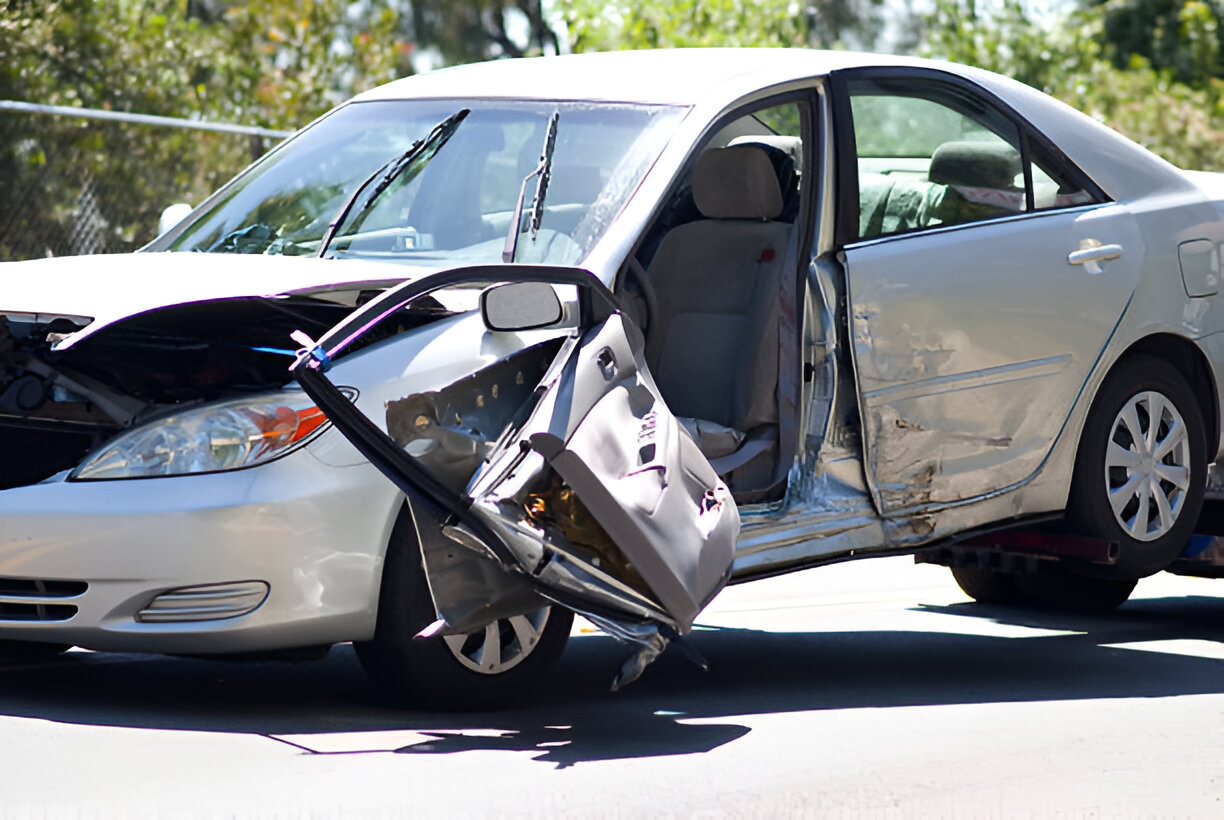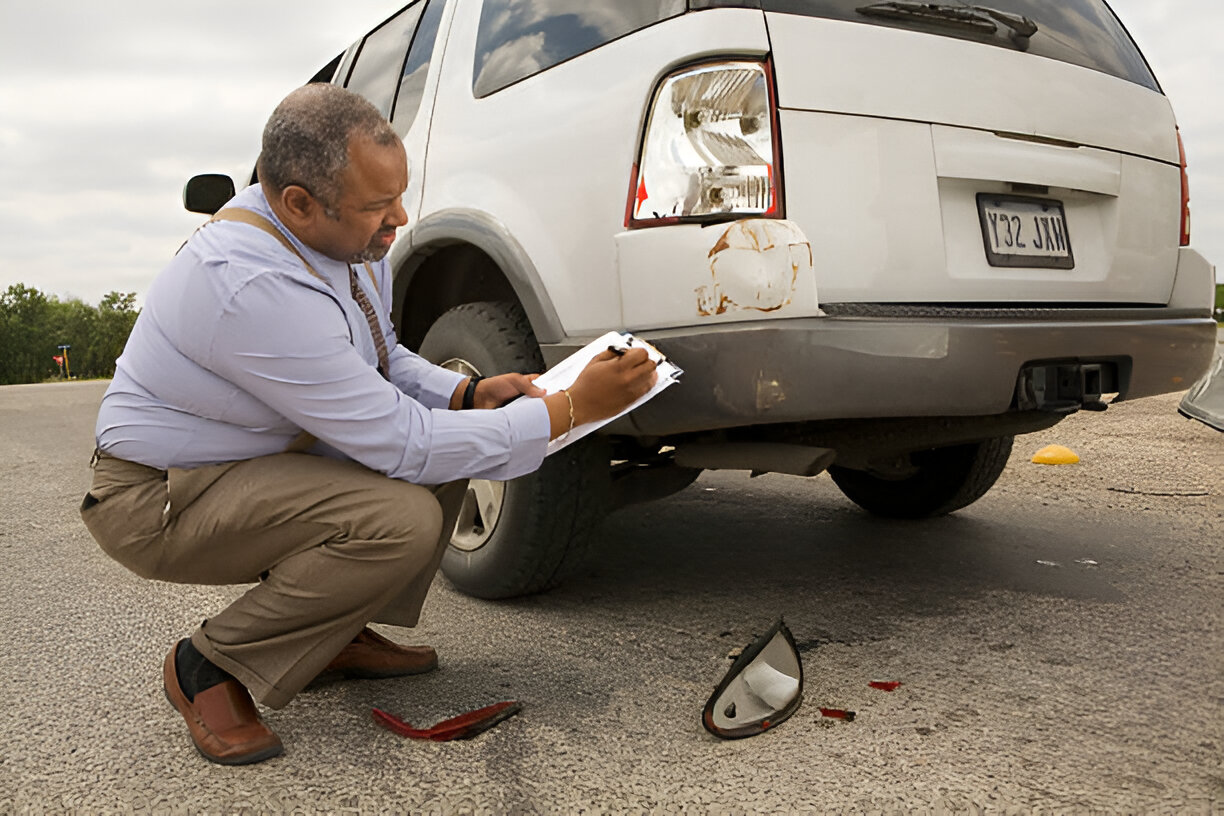Car Accident Settlement Calculator
- Home
- Car Accident Settlement Calculator
If you’ve been injured in a motor vehicle collision, determining your potential compensation is an essential first step. Our Car Accident Settlement Calculator provides an estimated value based on key factors specific to your situation. While this tool generates an approximation rather than a guaranteed amount, it offers valuable insight to help evaluate whether legal consultation is warranted.
This calculator analyzes your inputs against data from comparable car accident settlements nationwide. Though not a substitute for professional legal assessment, it helps quantify possible compensation for your specific injuries and losses.
Select the type of accident you were involved in:
Driver of a vehicle: Select if you were driving your own vehicle when the accident occurred. As a driver, your claim will be affected by your state's liability laws and any comparative negligence.
Passenger in a vehicle: Select if you were a passenger when the accident occurred. Passengers often have strong liability claims as they typically had no control over the vehicle.
Enter the total amount you've spent on medical treatment related to your car accident injuries. This includes emergency room visits, hospitalization, surgeries, medications, physical therapy, and any other medical costs you've already incurred.
Enter the total estimated cost to repair or replace your vehicle if damaged in the car accident. This includes vehicle repair or replacement costs, damaged personal items inside your vehicle, diminished value after repairs, and rental car expenses during repairs. For passengers without vehicle damage, leave this field at $0.
Enter wages, salary, commissions, or other income you've lost due to your car accident injuries. This includes time missed for medical appointments, recovery periods, and any reduction in work capacity.
If your injuries will prevent you from returning to your previous employment or will limit your earning capacity going forward, enter the estimated value of these future losses.
Enter the projected costs of ongoing or future medical treatment related to your car accident injuries. This may include future surgeries, rehabilitation, medications, or long-term care needs.
This factor reflects the severity of non-economic damages like pain and suffering. The multiplier typically ranges from 1.5 (for minor injuries) to 5 or higher (for severe, permanent injuries). The calculator applies this multiplier to your economic damages to estimate non-economic compensation.
This is the sum of your medical expenses, lost earnings, future lost income, and estimated future medical expenses. These are your actual financial losses resulting from the accident.
This represents compensation for non-monetary losses such as pain, suffering, emotional distress, loss of enjoyment of life, and inconvenience. The value is calculated by applying the damage multiplier to your economic damages.
$0
The estimated total value of your potential car accident settlement, combining both economic and non-economic damages.
Get a free, no-obligation consultation with a car accident attorney who can review your case details and help maximize your compensation.
Want To Embed This Calculator? Use The Code Below...
<div id="my-calculator"></div>
<script src="https://injuryclaimcalculator.us/wp-content/plugins/vehicle-calculator/vehicle-calculator.php">
</script>
<script>
loadCalculator('my-calculator');
</script>
How are car accident settlement amounts calculated?
Our Car Accident Settlement Calculator uses a basic mathematical formula that processes the information you provide to generate an estimate. The calculator works with these straightforward elements:
-
Direct Input Processing: The calculator only uses the specific values you enter into each field.
-
Simple Calculation Method: Economic damages (medical expenses, lost wages) are added together to create your economic damages total.
-
Standard Multiplier Application: Your selected pain and suffering multiplier is applied to economic damages to estimate non-economic compensation.
-
Basic Addition: Economic and non-economic figures are combined to produce a total estimate.
-
No External Data: The calculator does not access or incorporate any outside data beyond what you manually input.
Note that your actual settlement may differ based on jurisdiction, comparative negligence rules, available insurance coverage, and other case-specific elements not captured by the calculator.
What types of compensation are available after car accidents?
Motor vehicle accident victims generally pursue compensation in two primary categories:
-
Economic damages encompass all tangible financial losses directly attributable to the accident. These typically include emergency medical bills, hospital charges, surgical costs, prescription medications, and rehabilitation expenses. Also covered are income losses during recovery, diminished future earning capacity, vehicle repair or replacement costs, adaptive equipment expenses, and transportation to medical appointments.
-
Non-economic damages address subjective losses without precise monetary values. Physical pain from injuries constitutes the primary component, accompanied by psychological and emotional distress from the traumatic event. When accidents limit participation in previously enjoyed activities, compensation for diminished quality of life may apply. Relationship interference claims (loss of consortium) are recognized in many jurisdictions.
Various factors can significantly impact car accident settlements. Insurance policy limits often establish maximum recovery amounts regardless of actual damages. Comparative fault rules in your state may reduce compensation proportionate to your share of responsibility. Certain jurisdictions impose damage caps limiting specific compensation types, particularly in cases involving government entities.
What injuries commonly result from automobile collisions?
Motor vehicle accidents generate distinctive injury patterns reflecting impact dynamics, vehicle structural characteristics, and occupant positioning. Frequently documented injuries include:
-
Neck Trauma: Including cervical strain, whiplash syndrome, and vertebral compression
-
Head and Cognitive Injuries: Ranging from minor concussions to penetrating brain trauma.
-
Back and Spinal Damage: Compressed vertebrae, herniated discs, and potential paralysis
-
Orthopedic Injuries: Fractured extremities, clavicle breaks, and joint dislocations
-
Chest Trauma: Rib fractures, pneumothorax, and cardiac contusions
-
Abdominal Injuries: Lacerated organs, internal bleeding, and traumatic hernias
-
Psychological Conditions: Post-traumatic stress disorder, anxiety disorders, and accident phobias
Injury permanence, treatment duration, and functional impact directly influence settlement values. Conditions requiring surgical intervention or resulting in permanent impairment typically generate substantially higher compensation amounts.
Which parties might bear liability for your vehicular accident?
Car accident liability frequently extends beyond the immediately involved drivers:
-
Motor Vehicle Operators: Liability attaches for violations including speed infractions, attention lapses, impaired operation, or traffic signal non-compliance.
-
Automotive Producers: Responsibility may stem from design flaws, manufacturing defects, or safety system failures contributing to accident occurrence or severity.
-
Infrastructure Authorities: Entities responsible for roadway design, maintenance, and signage may face liability for hazardous conditions.
-
Component Suppliers: Manufacturers of critical systems like braking assemblies, steering components, or tires bear responsibility for failure-causing defects.
-
Commercial Entities: When at-fault drivers operate within employment scope, their employers often share vicarious liability.
Establishing liability requires comprehensive accident investigation. Critical evidence includes police documentation, eyewitness accounts, surveillance recordings, and vehicle telemetry data when available.
Liability standards vary by jurisdiction, with comparative fault states permitting recovery despite partial responsibility and contributory negligence jurisdictions potentially barring compensation for claimants bearing any fault.
What frequency and severity statistics apply to vehicle accidents?
Vehicular collisions represent a predominant injury mechanism throughout the United States. Annual statistics reveal approximately 5.5 million police-reported crashes, causing roughly 1.9 million injuries and approximately 36,000 fatalities. Passenger vehicles account for 80% of these incidents, followed by commercial vehicles (15%) and motorcycles (5%).
Contributory factors consistently include operator attention deficits (28%), excessive velocity (17%), impairment from substances (13%), adverse environmental conditions (11%), and driver inexperience (8%). Technological safety advancements have reduced fatality rates per vehicle mile traveled, though the absolute number of serious injuries remains substantial.
Geographic variations show significantly higher accident rates in urban environments and during peak commuting periods, with intersection collisions representing nearly 40% of all injury-producing crashes.


State-by-state legal time limits for filing car accident claims
Car accident claims face strict legal deadlines that vary significantly by state. While most jurisdictions allow 2-3 years to file personal injury lawsuits, this timeline shortens dramatically for claims against government entities.
Missing your filing deadline can permanently eliminate your right to compensation. For a complete breakdown of filing deadlines in all 50 states, including special requirements, discovery rule exceptions, and provisions for minors, visit our comprehensive Car Accident Statute of Limitations guide.
Remember that insurance notification deadlines operate separately from legal filing requirements, often demanding action within days of the incident.
What steps should be taken immediately after a collision?
After a vehicle accident, take specific measures to safeguard both your physical wellbeing and legal interests. Seek medical evaluation promptly regardless of apparent injury severity, as numerous conditions develop symptoms gradually. Contact law enforcement to document the incident officially with a comprehensive accident report.
Document the scene thoroughly if safety permits, photographing all vehicles, surrounding area features, and visible injuries. Collect contact information from all witnesses and involved parties. Record vehicle identifying information including license plates, insurance details, and driver identification.
Maintain complete records of all medical consultations, retain copies of all healthcare documentation, and adhere strictly to treatment recommendations. Avoid social media discussion of the incident and decline recorded statements to insurers without legal counsel.
Provide basic accident notification to your insurance provider without elaborating on fault or injury specifics. Consult with a qualified motor vehicle accident attorney before accepting any settlement proposal, particularly with significant injuries or disputed liability.


When is legal representation advisable for car accident claims?
What circumstances indicate the need for attorney consultation in your accident case? Consider securing legal representation when confronting serious injuries, contested liability situations, or cases involving multiple potential defendants. Attorney involvement becomes particularly crucial with injuries requiring extensive treatment or resulting in prolonged disability periods.
Experienced counsel accurately values your claim by calculating complete current and projected financial losses while ensuring appropriate compensation for non-economic damages. Insurance carriers consistently offer higher settlements to represented claimants compared to direct negotiations with injury victims.
A qualified car accident attorney identifies all available compensation sources, navigates complex insurance coverage interactions, and addresses jurisdiction-specific legal requirements affecting recovery. Most vehicle accident lawyers provide complimentary case evaluations and operate on contingency fee structures, eliminating upfront costs while aligning attorney compensation with successful outcomes.